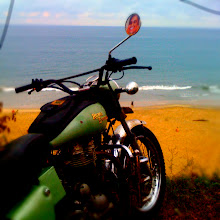Today was eventful, in part because I got an even earlier start than normal. (I've typically been getting up around 6 am -- the sun comes up even earlier, owing to the entire country being on one time zone, all the way to its western hinterlands, which means that in the places I've visited, it's dark before 7 pm and light far earlier than at home.)
I began with the expansive Forbidden City. The place is clearly designed with the word grandeur in mind, and it conveys nothing if not this impression. My travel companions and I were constantly amazed by the physical manifestations of deference to the head-honcho in the Forbidden City: several ornate bridges and passages that were reserved exclusively for the Emperor (with adjacent alternatives that one might be permitted to take, depending on one's rank). Don't get me wrong: I don't pretend that the halls of our government are as open as our democratic system would demand, but there's something so visceral about the idea that only one man's feet are allowed on a bridge. Oh yeah, and crawling on one's knees to approach a imperial audience also has that effect.
One nice thing about the early start: we'd already given the Forbidden City a decent once-over when the tour groups started arriving (many, many of them) around 10:30, as we were making our exit.
Our next stop was Tianemen Square. Standing in the place of the world-changing protest in June, 1989, I couldn't help but think of that lone student's courage, and to ponder his fate (and the thousands believed to be gunned down, imprisoned or both just outside the perimeter of the square). How many of us would have the fortitude to stand before a column of tanks? Facing certain death? Because we want access to information and a free press?
It has been a frequent subject of discussion among my hostel-mates, the irony that the reforms initiated after the Tianamen Square massacre have primarily resulted in opening China's marketplace, without much correponding reform demanded by those brave students. Again, in China, there is no BBC, no Wikipedia, no Blogspot.
Spending the day in the shadow of the enormous Chairman Mao portrait on the Gate of Heavenly Peace (facing the Square), there's also much to ponder about the cult of personality created around this man. Portraits, posters, wrist-watches and all manner of other trinkets with Mao, a broad smile on his face, abound here. His portrait graces every denomination of Chinese currency. The message of this regime appears bent on branding Chinese with Mao as its mascot, and yet the Chinese Communist Party's official line on Mao these days is that he was "70% right, and 30% wrong".
My fellow travelers and I have spent much time speculating about how deeply the adoration of Mao is felt. Every morning, the queue to view his preserved body stretches for hours (where, tomorrow, I plan to find myself). But I just can't tell whether his iconic status itself is what people adore, or if it's his policies, or if, in fact, the People's Republic offers a better life for people than the one people had under Chang Kiashek and the Nationalist Party.
It is no accident, to be sure, that the Tianamen protesters launched paint at the enormous Mao portrait on that fateful day in '89. (It was replaced with a duplicate within 24 hours.) How do such repression and adoration co-exist? (This is a question, of course, that I have had far too many occasions to ask at home in recent years, too.)
As Beijing prepares itself for the world spotlight with the start of the Olympic games (new buildings being constructed throughout the city testify to this fact), I hope the view the world gets of China grasps the complexity of this place -- its history, its potential but also the dangerously repressive practices of its government.
And, speaking of complexity... With the passage of time and conversations with fellow travelers, I've gained some additional (and disappointing) perspective on some of the warm welcome I received in Shanghai. In particular, I appear to have been taken in on some prominent scams perpetrated on visitors in many of the big city tourist destinations. My English-speaking tea-drinking 'friends' in Shanghai appear to have over-charged me pretty outrageously. It seemed expensive at the time, but as it was my first day in China, I had little frame of reference.
I consider it tuition, of a sort, but one that I'm not entirely excited to have paid. (We'll see if my credit card company has anything to say about it.) I also lost a little on my first day -- although much, much less -- to some 'art students' with a 'gallery' and an urgent need to show me their work. And yet, I have met (and continue to meet) hundreds people who are helpful, kind and generous for every one who's swindled me. Discerning one from the other certainly adds to the complexity of traveling here, but 100-to-1 still seems like a ratio that compares favorably with many parts of the world, my home turf included.
Monday, September 24, 2007
Echoes of the Forbidden City
Posted by
Eric
at
5:22 AM
![]()
![]()
Subscribe to:
Post Comments (Atom)



No comments:
Post a Comment